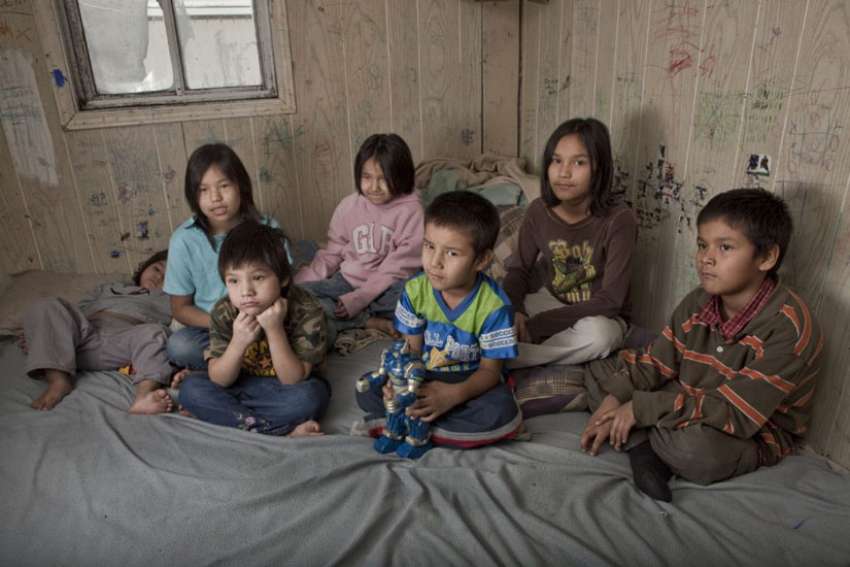Yet the opposite has been occurring since a unanimous 1989 all-party resolution pledged to end child poverty within a decade. Rather than lance the boil, by 2000 child poverty actually swelled by 6.5 per cent. There’s been some improvement since then but the rate still stands almost three per cent higher than 27 years ago when MPs united to mouth what became an empty promise.
That distressing reality was highlighted in the annual report from Campaign 2000, a non-partisan group working to end economic hardship for children and families. Their data crunchers used Statistics Canada figures to show that 18.3 per cent of Canadian children still live in poverty, a rate that soars to 40 per cent for indigenous children.
In hard numbers, that means poverty is the norm for 1.3 million children. Unsurprising, next to indigenous children the hardest hit are those in single-parent families, racial minorities, the disabled, new immigrants and refugees — the most vulnerable.
It’s a scandalous situation and it persists despite Canada’s wealth. Many less-well-off countries have achieved lower rates of child poverty. So the issue isn’t money. It’s about priorities and political will. Canadian children — non-voters all — never make it to the top of the spending list.
Last spring the federal government endorsed all manner of costly projects in a $30-billion deficit budget. Canada’s accumulated debt stands at $632 billion, and rising. Throw in the debt of the 10 provinces and Canadians are on the hook for a combined $1.3 trillion. So the reason this problem has spanned the decades isn’t because the chequebook was lost.
Governments readily write large cheques but spend too few dollars on children’s causes. Even when an initiative comes along such as the Canada Child Benefit, launched last July, it hardly dents the problem. That one program is projected to lift 300,000 children from poverty, which is great, but still leaves one million others needing help.
Various initiatives have been proposed over the years to end the scourge of child poverty. Recently, there’s been a push for a guaranteed basic income to raise all Canadian families above the poverty line. Other strategies address affordable housing, a higher minimum wage, education, nutrition and health. There’s been no shortage of ideas and political posturing, but consistently absent is a genuine political will to make children a true priority.
A generation ago MPs promised to do just that. But they failed then and continue to fail now to make child poverty a national issue. That must change. Canada’s record on this file is beyond tragic. It’s shameful.


